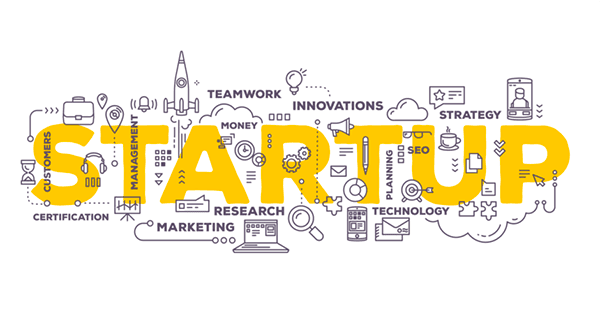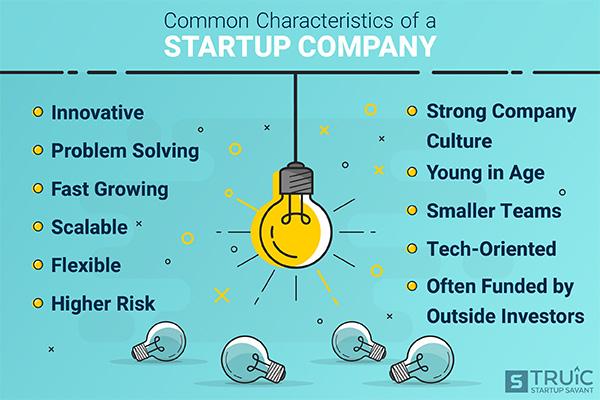
What is a Startup
A startup is an emerging company that seeks to develop a scalable and repeatable business model, generally in a highly uncertain environment. These companies are usually in the early stages of their development and are characterized by their focus on innovation, either by creating new products, services, or technologies. The main objective of a startup is to solve a specific market problem or meet an unmet need, which allows it to grow rapidly and, in many cases, attract significant investment.

The main characteristics of Startups
Startups have many distinctive characteristics that set them apart from traditional companies.
1. Flexibility
Startups operate in a dynamic and changing environment, which requires them to adapt quickly to market conditions and customer needs. This flexibility allows them to pivot their business model, adjust their products or services, and experiment with new strategies. The ability to adapt to change is crucial to their survival and growth.
2. Innovation
Innovation is the core of a startup. These companies often seek creative and original solutions to existing problems or explore unexplored market niches. Innovation can take many forms, such as the development of new technologies, the creation of disruptive business models, or the improvement of existing processes. This constant search for innovation is what allows them to differentiate themselves from the competition.
3. Scalability
One of the most important characteristics of a startup is its scalability potential. This means that, as demand for its products or services grows, the company can increase its production and operations without the costs growing in the same proportion. Startups often use technologies and business models that allow them to expand rapidly, which is attractive to investors looking for a high return on their investment.
4. Rapid Growth
Startups aim to achieve rapid growth in a short period. This growth can be measured in terms of revenue, users, or geographic expansion. Often, startups seek funding through investment rounds to accelerate this growth, allowing them to scale their operations and capture a larger market share. This focus on rapid growth is one of the reasons why startups are seen as engines of innovation and economic development.

Types of Startups
Startups can be classified into various categories based on the industry in which they operate and the type of innovation they offer. Below are some of the most prominent types of startups:
Fintech (Financial Technology)
Fintechs are startups that use technology to offer innovative financial services. This sector is revolutionizing the way people and businesses manage their money, offering more accessible and efficient solutions than traditional banking services. Fintechs can range from payment and lending platforms to investment management and insurance applications.
Recommended Lecture Fintech: The revolution of the financial world

2. Foodtech
Foodtech startups focus on innovation within the food industry. This includes the development of new technologies for food production and distribution, as well as solutions that improve sustainability and health in food. Examples include food delivery applications, plant-based meat alternatives, and vertical farming technologies.
3. Proptech (Real Estate Technology)
Pro-techs are startups that apply technology to real estate. These companies seek to improve the buying, selling, renting, and management of properties. Innovations such as property search platforms, market analysis tools, and property management solutions are common in this sector.
4. Edtech (Educational Technology)
Edtech startups are dedicated to creating technology solutions for education. This includes online learning platforms, learning management tools, and applications that facilitate personalized education. These startups seek to improve the accessibility and quality of education through technology.
Recommended Lecture The Rise of Edtechs in Latin America

5. Healthtech (Health Technology)
Healthtechs are startups that develop technologies to improve medical care and health in general. This may include telemedicine applications, health monitoring devices, and patient data management platforms. Their goal is to make healthcare more accessible, efficient, and patient-centric.
6. Traveltech (Travel Technology)
Traveltech startups focus on innovation in the travel and tourism industry. This includes booking platforms, travel planning applications, and solutions that enhance the traveler experience. These startups seek to simplify and enrich the travel process.
7. HR Tech (Human Resources Technology)
HR tech are startups that apply technology to human resource management. This includes tools for recruitment, talent management, training, and employee development. These solutions seek to optimize processes and improve the employee experience within organizations.

8. Climatech (Climate Technology)
Climatech startups focus on developing technologies that address climate change and promote sustainability. This may include renewable energy solutions, carbon capture technologies, and applications that promote sustainable practices. Their goal is to mitigate environmental impact and promote a more sustainable future.
9. Energytech (Energy Technology)
Energytechs are startups that innovate in the energy sector. This includes the development of technologies for energy generation, storage, and management. These startups seek to improve energy efficiency and facilitate the transition to more sustainable energy sources.

10. Agtech (Agricultural Technology)
Agtech startups focus on innovation in agriculture and food production. This includes technology solutions for crop management, resource optimization, and improving the agricultural supply chain. They aim to increase efficiency and sustainability in food production.
11. Insurtech (Insurance Technology)
Insurtechs are startups that use technology to transform the insurance industry. This includes platforms that simplify the purchase of insurance, risk analysis tools, and solutions that improve the customer experience. These startups seek to make insurance more accessible and personalized.

